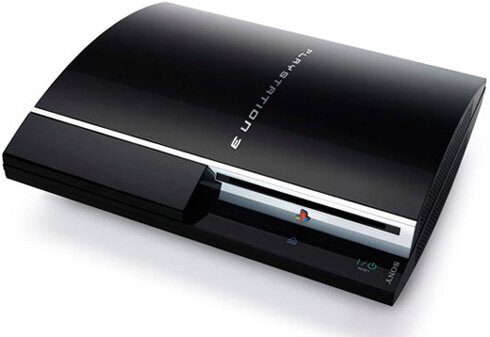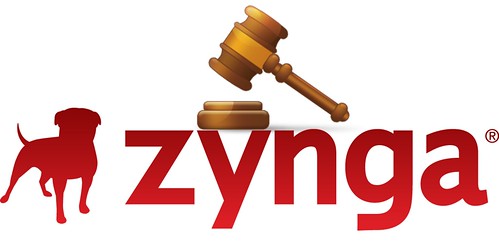 |
| If only we could see inside Nintendo this easily. |
While we await the results of Nintendo's price-slashing experiment with the 3DS, some rumors (courtesy of Bloomberg Japan) have
surfaced, claiming that Nintendo is planning a big announcement in September, perhaps prior to the Tokyo Game Show. Nintendo's stock
has risen almost 10% in the last few days, which certainly might indicate that something is up. Adding fuel to the fire is
this report on French gaming site 01net.com, which claims to have heard from a source inside Nintendo the following things:
1) Nintendo is planning an add-on second analog control for the 3DS, which would retail for about $10.
2) 3DS dev kits have about a 6-month backlog, so Nintendo is outsourcing the production in an attempt to get them out faster.
3) Nintendo, realizing that the whole 3D craze has flamed out, is planning to de-emphasize the 3D display, possibly even rebranding the 3DS.
4) Nintendo is planning a new 3DS for release next year... which would radically tone down the 3D aspect, a new design and possibly the new branding.
While Nintendo may be about to make a big announcement in September, I'm sure it wouldn't be about any new hardware. I seriously doubt they would want to do anything that might hurt holiday sales. I'd expect some announcement of additional marketing efforts, perhaps some free software pack-ins or downloads, and maybe an announcement of big marketing spending over the holidays. I think Nintendo will want to push the 3DS as hard as possible this holiday season (I'm already seeing new TV commercials pushing the lower price and the software titles coming soon), to maximize the sales.
Nintendo probably realizes just how dire the situation is for the 3DS. If they can't show strong sales over the holidays, with a radically lower price tag and with Zelda, Mario, Mario Kart and Starfox all hitting the stores, you can bet 3rd-party publishers will be spraining a finger pushing the abort button on current or planned 3DS development. If the 3rd-party publishers head for the PS Vita or smartphones (or both), the 3DS has almost no chance of being a big success.
I suspect Nintendo is hoping to demonstrate at least strong sales this holiday season, if not stellar sales. Then early next year they can keep publishers excited by telling them about the new version of the 3DS, where they fix all the perceived problems (make it smaller, lighter, longer battery life, 2nd analog control) and relegate the 3D feature to a minor role (since it doesn't seem to be a huge draw for customers; if anything, it might be keeping moms away from buying it over concern for their
kid's eyesight).
Nintendo won't want to make any public announcement of a new version of the 3DS until just before it ships, or else sales would probably totally collapse. They might, however, want to float a few trial balloons in the rumorsphere, just to see what the response is among publishers and customers.
I think shifts in the hardware and the marketing emphasis might help, but the real problem is with Nintendo's business model. The problem of dev kits being back-ordered 6 months is a huge one for the future of the device. No dev kits, no development... which means fewer titles, which means less software to attract buyers. The fact that Nintendo
still wants to charge about $4500 for a dev kit shows they still don't understand the value in having a lot of titles out there. (Microsoft charges $99 for an XNA sub to allow you to make Xbox indie games, for instance; Sony's charging $2700 for a PS Vita dev kit.) Nintendo really needs to open up development, and put some serious effort into digital distribution, if they want to have a chance.
I note that Sony
recently stated that all PS Vita titles would be available through digital distribution as well as in retail stores. Which may not make GameStop all that happy, but it's certainly a plus for customers. Nintendo has yet to make any substantive moves in this direction; if anything they've said they aren't all that interested in online stuff.
This is all happening as excitement is building prior to Apple's introduction of a new iPhone model. Rather, two new models; a new one with a faster processor, bigger screen, and better camera, the usual yearly advancement everyone expects. The real winner, though, is the other iPhone that's looking more real: The iCloud iPhone, which is essentially a cost-reduced iPhone 4 with only 8 GB of flash storage that can use Apple's new iCloud service for streaming music and video. This may be so low cost as to be free with a 2-year contract with AT&T or Verizon. If that's true, we're talking an even greater threat to the 3DS and the PS Vita.
Yes, yes, I know smartphones don't play the deeper, richer games you find on consoles... yet. But everyone needs a phone, and when you leave the house you'll always carry that, for sure. If you have a smartphone that plays some pretty nice games (that are mostly free or only a couple of bucks), you will be much less inclined to drop hundreds of dollars on a dedicated gaming device where the games cost $40 apiece. You'll certainly be much less inclined to buy a dedicated handheld gaming device for your kids when you will really want to make sure they have a phone first. If a really cool smartphone is $0 when you sign a 2-year agreement... hey that sure looks attractive. No wonder handheld software sales having been dropping for the last 3 years straight.
And as smartphones become even more popular, and their graphic capabilities equal or exceed consoles, we'll see more of the key console hits coming to smartphones. I'm not surprised at all that Nintendo might be getting a little desperate. I just hope they start applying their talent for disruptive innovation to their business models, and not just their hardware designs.



































